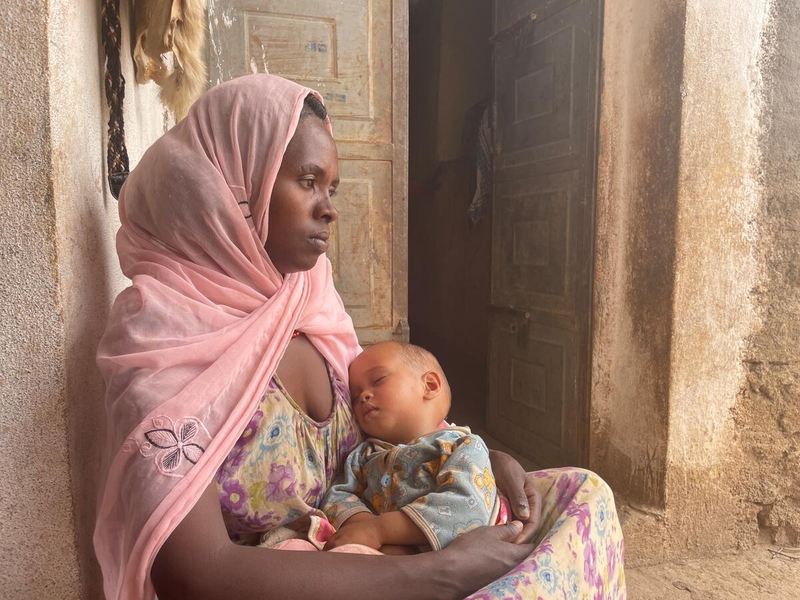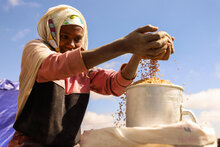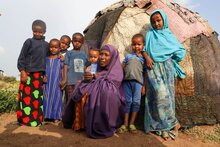Conflict, climate and soaring food prices push Ethiopia further into hunger while WFP funding runs out
Here is an update on the situation across conflict and drought affected areas of Ethiopia:
- In Northern Ethiopia, 19 months of war have left more than 13[1] million people in need of humanitarian food assistance, mainly in conflict affected zones in Afar, Amhara and Tigray regions.
- Food and humanitarian supplies have been flowing at pace into the Tigray region over the past two months since the Government’s humanitarian truce was announced. Since 1st April, WFP has delivered over 100,000 tonnes of food for its own and partners’ operations – enough to feed 5.9 million people for a month. Yet fuel deliveries are not keeping pace and less than half of the two million litres of fuel needed has entered the region in recent weeks.
- WFP has finally been able to meet the food needs of over 800,000 people in Tigray and has just completed its most recent deliveries of emergency food rations to 1.3 million people in Afar and Amhara.
- In Tigray, over 20% of children under 5 and half of pregnant and breastfeeding women are malnourished[2]. Meanwhile, almost a third of parents (32 percent) in Afar zone 4, and 16 percent in Amhara reported that their young children under five had been admitted to health centres in the previous three months due to malnutrition, according to a recent WFP assessment in conflict-affected zones of both regions.
- In southern and south-eastern Ethiopia, an estimated 7.4 million people wake up hungry every day as the country grapples with the fourth failed consecutive rainy season.
- The combination of conflict and drought have caused inflation to soar. As of April 2022, the Food Price Index in Ethiopia is up by 43 percent compared to the same month last year. The prices for vegetable oil and cereals are up by over 89 percent and 37 percent year-on-year.
- The ripple effect of the war in Ukraine is set to exacerbate the food security crisis in Ethiopia, where over three quarters of WFP’s and the government’s wheat – the staple cereal - comes from Ukraine or Russia. The crisis in Ukraine threatens to push the cost of wheat and fertilizer beyond the means of millions of farmers, threatening this year’s harvest.
- WFP is warning of a looming malnutrition crisis due to a severe lack of funding to its operations. WFP’s funding to treat more than 1.4 million acutely malnourished women and children in Northern Ethiopia is fast running out. Between January to April, WFP only reached 40% of mothers and children targeted in Northern Ethiopia (560,000 out of 1.4 million) with nutrition treatment due to the severe lack of funding to its operation.
- WFP’s funding gap has forced rations cuts for more than 700,000 refugees in the country. Refugees are now receiving a mere 50 percent of their minimum nutritional requirements.
- WFP is aiming to reach more than 11 million of the most vulnerable over the next six months but is grappling with a staggering US$470 million funding gap.
# # #
[1] The Food Cluster estimates over 7 million are in need of food assistance in Amhara, 1.2 million in Afar and 4.8 million in Tigray.
[2] Recent findings from Nutrition Cluster and Find and Treat Campaign.
Notes to Editors
Download video footage here.
Download photos here.
The United Nations World Food Programme is the 2020 Nobel Peace Prize Laureate. We are the world’s largest humanitarian organization, saving lives in emergencies and using food assistance to build a pathway to peace, stability and prosperity for people recovering from conflict, disasters and the impact of climate change.
Follow us on Twitter @WFP_Ethiopia and @WFP_Africa



